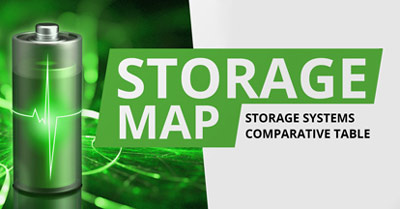With its plan for green energy, Ireland aims to achieve important goals for 2030. In fact, this country intends to focus on developing:
– own local renewable sources,
– national policies, that should promote the growth of renewable energy.
Ireland’s energy plan for 70% of RES-E by 2030
In order to increase the RES-E level in the country, Ireland will also introduce some new measures to stimulate the decarbonization process.
The objective proposed by this country concerns the share of RES-E, which Ireland has set at a value of 70% by 2030. This thanks to various measures like the implementation of the RESS, the increase of wind energy, solar PV and storage systems.
It is also proposed that a percentage of the RESS loans, go towards the development of new technologies. This could guarantee more solutions in the market with regard to renewable energy sources.
In this regard, Ireland should promote new renewable energy sources, high-efficiency storage systems, microgeneration, solar photovoltaic and offshore wind. In addition to this, further fiscal measures are planned to encourage the decarbonisation of the energy sector.
The greatest support for the development of low-carbon technologies is provided by the SEAI team, which provides market support for low-carbon energy technologies, such as the wind, solar and bio-energy sectors.
Solar PV, how will it grow?
In order to succeed in stimulating the renewable energy market, many proposals have been made, including the introduction of incentives for commercial and domestic micro-generation, and a review of grid connection costs.
In this regard, in July the government announced a new pilot plan to support microgeneration. This first support phase is aimed at the installation of photovoltaic and domestic systems for self-production.
A grant of up to € 3,800 (max 4kWp + storage system) is now available for homes built before 2011. The new solar photovoltaic support scheme also aligns with the new renewable energy directive, which brings the “prosumer” into the heart of new energy policy across the EU.
In July, the government launched a subsidized pilot micro-generation scheme for the installation of photovoltaic panels and for domestic customers for self-production. The pilot scheme also supports the use of battery storage for installations of a certain size.
These new incentives are fundamental to the energy development of this country. As can be seen from the graph, considering the solar photovoltaic sector, an important commitment on the part of Ireland in the development of this sector would entail a substantial difference as regards the MW installed in the coming years.
With these measures, Ireland aims to achieve its goals, becoming one of the “greenest” countries in the European Union.







